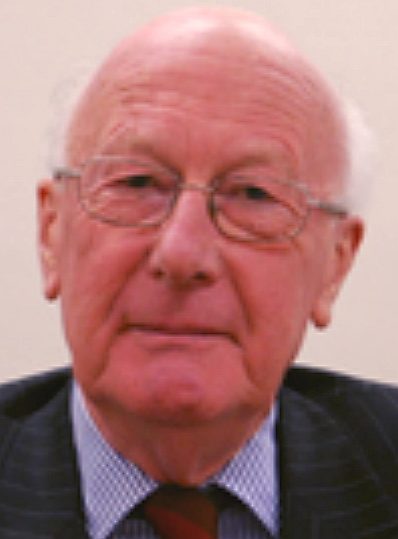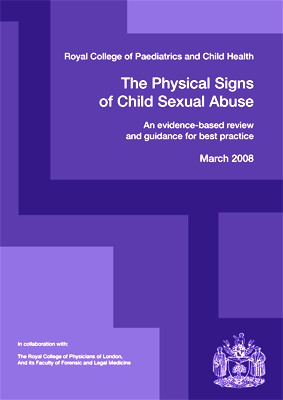|
|
||||||||||||||||||||||||||||||||||||||||||||||||||||||||||||||||||||||||||||||||||||||||||||||||||||||||||||||||||||||||||||||||||||||||||||||||||||||||||||||||||||||||||||||||||||||||||||||||||||||||||||||||||||||||||||||||||||||||||||||||||||||||||||||||||||||||||||||||||||||||||||||||||||||||||||||||||||||||||||||||||||||||||||||||||||
|
Sir Christopher Holland was appointed as the Chairman of the Inquiry by the Secretary of State for Justice on 10 June 2010. He became a Recorder on the North Eastern Circuit in April 1992 and a Justice of the High Court, assigned to the Queen's Bench Division in September 1992. Sir Christopher retired as a High Court Judge on 23 November 2007. This is the Judge who looked at Nelson Kruschandl's application for leave to appeal in 2008, and it appears initialed the box on the appeal form, but then crossed out his initials.
This left the candidate appellant unsure as to if the Judge had intended for his initials to be taken as that, of if he had intended to cross out his initials. In the event, barrister Michael Harrison could not find out in the 14 days allowed to consider approaching the three judges - the next stage in the appeal process.
What that meant is the Christopher had done what he was paid to do, thwart inconvenient appeals, for which he received his knighthood - for services rendered to the state. Knighthoods are of course handed out by the Head of State, at the moment, The Queen of England.
Sir Christopher Holland - Did he initial the box or didn't he? Judges owe a duty of care to appellants to be clear on forms. This Judge failed to spot that a medical transcript that barrister Michael Harrison had asked for, had been denied to him. This turned out to be a crucial error on the part of Sir Christopher - which begs the question: are retired judges too old to make decisions of this kind and still be competent when it comes to procedural irregularities. We think not. We think that older judges who may be tending to senility or other conditions associated with age, should not be charged to make such important decisions. England is no longer a bastion of democracy, nor the defender of the faith, nor the land of equality with justice for all. The alternative is that Christopher had all his faculties and decided not to follow the correct procedure. For sure, Michael Harrison decided that he would not bring the failing on the part of the Court (this judge) to his attention - making Harrison an accessory to the virginity fraud.
TIMES REPORT 11 JUNE 2010
A RETIRED High Court judge has been appointed to chair the inquiry into the death of Azelle Rodney, Justice Secretary Ken Clark confirmed yesterday.
SHOOTING INQUIRY
An unprecedented public inquiry rejected the accounts from the officer who fired the fatal shots which killed Azelle Rodney as he sat seat-belted in the back of a car.
TRIGGER
HAPPY
LINKS
http://www.times-series.co.uk/news/8213614.Ex_judge_appointed_to_lead_Azelle_Rodney_inquiry/ http://www.channel4.com/news/azelle-rodney-unlawfully-killed-by-police http://azellerodneyinquiry.independent.gov.uk/about.htm
This is the document that Cramp & Co did not know about when defending a case between 2006 and 2008 - but would have discovered if they had challenged the medical evidence as instructed by their client. This could have led to an adjournment, and following specialist reports, dismissal of the case, on the assumption that appropriate applications would then have been made.
ANATOMY OF A STITCH UP:
Set against a background of increasing pressure to gain convictions, many police officers fail to investigate fully for fear of finding inconvenient truths, which they will then have to pass to a defence team during the discovery process.
The fact is it is all too easy to put an innocent man behind bars where a blunderbuss serious of charges, often used in sexual assault cases, make it all but impossible to mount a defense with alibis for specific events claimed. (This may of itself breach Article 6 for a lack of detail, as is required by Article 6 (3) (a), but English defenders frequently fail to use this Article to pinpoint exactly what the Crown are alleging.)
This is called the 25-75% rule. Statistics prove that a single charge results in a conviction rate of 25%. This rises to 75% with four charges. Thus, the Crown simply have to add a couple of allegations - to be sure of obtaining a conviction. They do this by cajoling a person making an allegation, into agreeing that whatever he or she is claiming may have taken place more times than they are suggesting. The grateful claimant takes what social workers and police officers are suggesting, as a sign that they believe the claims - so, elaboration begins.
If you are very lucky, this may eventually be the undoing of the case, even though this may be years later, having served a prison sentence and having had your life ruined.
In most cases an allegation grows like a pyramid, once the system kicks in. Unfortunately, at each stage of the process, the allegation grows as it is passed from one person in the chain to another, each adding their own interpretation and filling in the blanks, so to speak.
Where an allegation has been made (which is often the case) by a young girl or boy who may find him or herself in an uncomfortable family situation, which could be a combination of loneliness, stress from school work, social stresses from friends, or lack of them, not feeling important or feeling ignored. Sometimes just being bored or mischievous, or simply bearing a grudge - the child will often pander to the attention they are suddenly receiving, and sometimes they are simply bunny boilers, out to ruin someone they feel abandoned by...... It's a win, win situation for the accuser, with no comeback at all if found to be lying!!! They can simply move onto the next target, or go about life as usual - since nobody knows who they are. Should there not be a register of accusers?
The policies of Labour's Harriet Harman, Minister of State for Women, are designed to raise conviction rates is sex related cases, regardless of evidence. This has resulted in many more appeals and innocent men being freed, having been convicted on little or no evidence. It begs belief that such cases are brought, considering the irreversible harm caused to the victim, in these case the person defendant.
One key element in raising convictions in sex cases, was to shift the burden of proving guilt, to the defence to prove innocence. This was achieved simply by arbrogating the need for a Judge to give a warning to a Jury, that it is dangerous to convict on the unsupported say so of a a claimant - where this had so many times in the past proved to unreliable evidence. Nobody even noticed this slight of hand be the Justice Minister in the 1990s. The results though were devastating. The conviction rate soared. It was no longer "your word against hers". It is now "you are guilty mate, unless you can prove otherwise."
Before this arbrogation, it was the job of the Crown to prove guilt. That is no longer necessary. It is a witch hunt, plain and simple.
In many cases (number unknown) innocent men are rotting in jail, since there is no appeal for them unless fresh evidence surfaces, which may only happen once a bunny boiler repeat offends. Otherwise, there is no justice for men. A point overlooked by Harriet in her rush to up statistics for voters.
The English Appeal system relies on a Single Judge, who is usually biased in the extreme, no matter what HM Courts Service puts out. The Single Judge system breaches Article 6, where it is a paper application. This has been held consistently in the European Court, the exception being where an appellant has the benefit of solid (unrestricted) drafting of grounds of appeal.
In many cases it is the Court Administration that slips up, refusing transcripts - which may later be found to have been vital for the application to the single judge. By then it is all too late. Once the single judge has refused an application, that is held to have been an appeal, even though there has been no oral exchange, where a barrister may point a judge to evidence that is very often overlooked.
A later application to the Criminal Cases Review Commission, faces new obstacles, for even if you can now prove that the single judge got it wrong, or that your barrister was negligent, you may not argue anything that has been argued before. Catch 22? No, it's much worse than that - it is a State sanctioned stitch up, which breaches Article 17. The reason the State get away with this, is because your average lawyer is not aware of Article 17, and Article 13 is not included in the Human Rights Act 1998. it was deliberately left out so that Her Majesty did not have to provide an: "effective remedy." Which of course means, that they can make it up as they go along.
THE CAST: On the left is the Judge who admitted a diary for the Crown, then told a jury it belonged to the defendant, rather than the mother of the claimant. On the right is the Crown's barrister Henrietta Paget who also failed to notice the discrepancy in diary dates or to question her witnesses motives for hiding her work diary from the investigating officers - and in the middle is the Crown's expert; Melanie Liebenberg, a witness who mislead the jury into believing that a naturally occurring feature was suspicious, when it fact all women have such features to greater or lesser degrees.
Having discovered the existence of a diary, which was hidden in a loft by the mother in a sexual assault case (rape) you might wonder why she had hidden in her loft? When clearly it was and is material evidence having a direct bearing on the credibility of the claimant. It is alleged that the mother is a serial fraudster and that she hid this diary because she realized that it undermined the story her daughter had concocted with help from social workers. It is alleged that the mother hid a capital sum from the Benefits Office, made a fraudulent insurance claim, neglected to mention that she was in receipt of rents from a garage in Polegate and worst of all, said on the stand that the defendant in this case had not lived with her or contributed to the running costs of the household. This is surely a matter for the authorities to investigate, then for the CCRC to look at in the context of the safety of this conviction.
ANATOMY OF A STITCH UP - FLOW CHART
In a case where sexual assault is claimed, it is vital for investigators to act quickly to prevent potential witnesses from rehearsing and developing a version of a false claim. The investigators in this case allowed the claimant two weeks to rehearse a story, all the while she was obtaining feedback from social services and friends as to what to say such that it might be acceptable (believed). Coaching or rehearsing a story is of course illegal. Clearly, in this case coaching is a major feature. SOCAP procedures are designed to prevent coaching by obtaining a statement the moment an allegation is made. By this means false allegations may be revealed by preventing changes to a story that repair obvious lies that a defence will be able to disprove.
Clearly, in allowing 2 weeks for the claimant to speak with friends and social services, the Sussex Police were negligent in this case, depriving the defence of a valuable record of changes in the story as the allegation was developed. Was this simple negligence or criminal negligence? The CPS knew this was going on and used it to their advantage.
RIGHT OF REPLY
If any person who wishes to refute the facts as published herein, we would like to hear from you. A failure to respond to this invitation will be taken as deemed acceptance.
His barrister didn't challenge the so-called scientific evidence produced at trial. He should have. It was junk science. You'll have to wait for the subjects appeals in the ECHR to conclude before this book is published. Maybe then we'll see an official version in 2016/2017? European appeals take 4 years on average, from date of lodge. But first you have to exhaust any domestic remedy. He has finally, as of February 2013. A claim was lodged in July of 2013.
|
||||||||||||||||||||||||||||||||||||||||||||||||||||||||||||||||||||||||||||||||||||||||||||||||||||||||||||||||||||||||||||||||||||||||||||||||||||||||||||||||||||||||||||||||||||||||||||||||||||||||||||||||||||||||||||||||||||||||||||||||||||||||||||||||||||||||||||||||||||||||||||||||||||||||||||||||||||||||||||||||||||||||||||||||||||
FAIR USE NOTICE
This site contains copyrighted material the use of which has not always been specifically authorized by the copyright owner. We are making such material available in our efforts to advance understanding of environmental, political, human rights, economic, scientific, and social justice issues, etc. We believe this constitutes a 'fair use' of any such copyrighted material as provided for in section 107 of the US Copyright Law. In accordance with Title 17 U.S.C. Section 107, the material on this site is distributed without profit to those who have expressed a prior interest in receiving the included information for research and educational purposes. |
||||||||||||||||||||||||||||||||||||||||||||||||||||||||||||||||||||||||||||||||||||||||||||||||||||||||||||||||||||||||||||||||||||||||||||||||||||||||||||||||||||||||||||||||||||||||||||||||||||||||||||||||||||||||||||||||||||||||||||||||||||||||||||||||||||||||||||||||||||||||||||||||||||||||||||||||||||||||||||||||||||||||||||||||||||
|
This site is protected under Article10 of the European Convention on Human Rights and Fundamental Freedoms. |
||||||||||||||||||||||||||||||||||||||||||||||||||||||||||||||||||||||||||||||||||||||||||||||||||||||||||||||||||||||||||||||||||||||||||||||||||||||||||||||||||||||||||||||||||||||||||||||||||||||||||||||||||||||||||||||||||||||||||||||||||||||||||||||||||||||||||||||||||||||||||||||||||||||||||||||||||||||||||||||||||||||||||||||||||||





